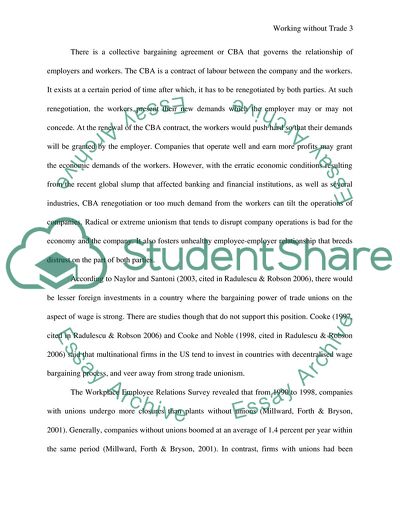Cite this document
(Working without Trade Unions Coursework Example | Topics and Well Written Essays - 1750 words - 1, n.d.)
Working without Trade Unions Coursework Example | Topics and Well Written Essays - 1750 words - 1. https://studentshare.org/human-resources/1751538-working-without-trade-unions
Working without Trade Unions Coursework Example | Topics and Well Written Essays - 1750 words - 1. https://studentshare.org/human-resources/1751538-working-without-trade-unions
(Working Without Trade Unions Coursework Example | Topics and Well Written Essays - 1750 Words - 1)
Working Without Trade Unions Coursework Example | Topics and Well Written Essays - 1750 Words - 1. https://studentshare.org/human-resources/1751538-working-without-trade-unions.
Working Without Trade Unions Coursework Example | Topics and Well Written Essays - 1750 Words - 1. https://studentshare.org/human-resources/1751538-working-without-trade-unions.
“Working Without Trade Unions Coursework Example | Topics and Well Written Essays - 1750 Words - 1”. https://studentshare.org/human-resources/1751538-working-without-trade-unions.


